The Abdullahi Smith Lecture Theatre at Ahmadu Bello University, Zaria, came alive recently with intellectual vivacity as Professor Abdullahi Ahmad of the Department of English and Literary Studies formally unveiled a new linguistic theory he christened GBOBEISM: The Wave Theory of Speech Acts (GBOWATSA).
Scholars, students, and administrators across faculties and some other members of the university community graced the historic presentation on Thursday, September 4, with many describing it as a milestone in the revival of public intellectual discourse at ABU.
The Man Behind the Theory
Professor Ahmad’s citation traced his life from his birthplace in Idah, Kogi State, through his early education at Native Authority Primary School and Government Secondary School Okenya, to his higher studies at Ahmadu Bello University, where he earned his BA (Ed.), MA, and PhD in English.
From his first teaching post at a community school in Bassa Local Government in 1990 to his blessed rise to Professor of Applied Linguistics in 2020, Prof. Ahmad’s career depicts dedication to discourse analysis, pragmatics, and sociolinguistics. He has authored over sixty papers, served in various academic and administrative roles, and belongs to several professional bodies including the Linguistic Association of Nigeria (LAN), English Scholars Association of Nigeria (ESAN), and the African Pragmatics Association (AfPrA).
What GBOBEISM Means
Taking the floor, Professor Ahmad explained the inspiration behind GBOBEISM. The name, drawn from his hometown Gbobe in Kogi State, follows the academic tradition of theories like Darwinism or Marxism.
At its core, the Wave Theory of Speech Acts argues that words are not mere utterances but forces like waves that influence perceptions and affect behavior. Building on J. L. Austin’s classic speech act theory, GBOBEISM emphasizes the perlocutionary effects as pronouncements cause consequences both immediate and future.
“We must recognize that words have power,” Professor Ahmad said. “They can bless, they can destroy, they can define how we see ourselves, and they can determine how society reacts to us.”
He outlined the theory’s goals:
1. To explain how pronouncements spread and influence audiences beyond their initial setting.
2. To examine ripple effects of speech, especially by political, religious, and cultural leaders.
3. To highlight the interplay between power, speech, and naturalization in communication.
4. To remind society that careless words can have unintended, far-reaching effects.
A Heated Criticism
According to Education Monitor, the lecture soon morphed into a lively exchange during the Question-and-Answer session. Some participants challenged whether GBOBEISM qualifies as a full theory or should first be considered a model. Others agreed on its potential applications in analyzing Nigerian political discourse. The propounder’s postgraduate students, other academics and undergraduates, participated in constructive critiques.
The Abdullahi Smith’s Theatre pulsed with intellectual fervour, with the Deputy Vice Chancellor (Administration), Professor Bello Sabo, later describing the discussion as “a healthy sign that the culture of academic interrogation is alive at ABU.” Representing the Vice Chancellor, he promised that the University would begin documenting such intellectual innovations across faculties for future reference.
Voices from the Audience
Dr. Muhammad Awwal of the Department of English and Literary Studies said the theory represents a bold African contribution to global knowledge:
“The world is moving fast; we must be creative. It’s not only for the West to theorize. Africans have a lot to contribute. Every theory begins in rough form before refinement. That is how scholarship grows.”
Muhammad Imam Yusuf, also of English and Literary Studies, found the presentation stimulating:
“It’s more like a model right now, but if it’s expanded and refined, GBOBEISM can stand as a robust theory in its own right.”
For James Jaku, an undergraduate from the Federal University of Education, Zaria, the theory was already impactful:
“Professor Ahmad has shown that GBOBEISM is not just an attempt, it is a reality system. With more attention, it can redefine how we study speech and power.”
Looking Ahead
In his final remarks, Professor Ahmad thanked colleagues, students, and dignitaries for their contributions. Responding to critics, he emphasized that GBOBEISM is indeed a theory, not a model, and assured to refine it further ahead of his inaugural lecture.
“My central objective,” he said, “is to bring something new to the study of linguistics that colleagues and students can use in their analyses. I welcome the criticisms, they are part of the process. What matters is that we keep moving scholarship forward.”
•Credit: Education Monitor.

















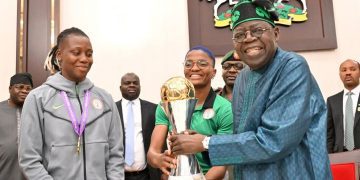







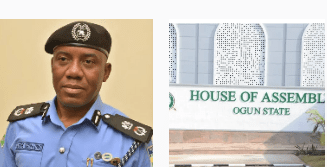

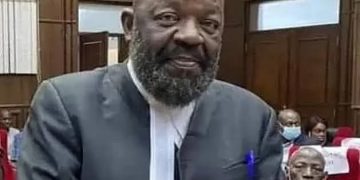












It’s a fraud. It’s political language in sociolinguistics and generative semantics by Chomsky. He might be using generative semantics tools to interprete polticalese. There’s nothing new in his GBOBEISM. Secondly, his terminology is not as related to linguistic study as to political science. I think he should find a better terminology to bring his hypothesis home to linguistics.